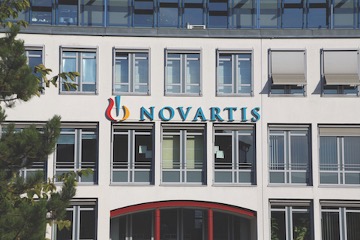Novartis shares promising phase 3 results for BTK inhibitor in chronic hives
August 12, 2023
Source: drugdu
 305
305

Novartis has shared positive top-line results from two late-stage studies evaluating its Bruton’s tyrosine kinase (BTK) inhibitor, remibrutinib, in patients with chronic spontaneous urticaria (CSU) whose symptoms are inadequately controlled by H1-antihistamines.
Affecting 40 million people worldwide, CSU is a debilitating and unpredictable condition characterised by the occurrence of itchy hives and/or deep tissue swelling that lasts for six weeks or longer.
H1-antihistamines are the first-line treatment for the condition; however, approximately 60% of patients are inadequately controlled by these alone and continue to live with the distressing symptoms of CSU.
Novartis’ remibrutinib works by blocking the cascade of BTK, an enzyme central to the release of histamine and, when spontaneously activated, plays a critical role in the symptoms associated with CSU.
The ongoing phase 3 REMIX-1 and REMIX-2 trials met their primary endpoint of absolute change from baseline in weekly urticaria activity score (UAS7) at week 12, demonstrating clinically meaningful and statistically significant improvements in disease activity.
Remibrutinib also demonstrated a rapid onset of action as shown by the improvement of UAS7 at week two, Novartis said, adding that the therapy was well-tolerated and demonstrated a favourable safety profile.
Shreeram Aradhye, president, global drug development and chief medical officer, Novartis, said: “CSU is a distressing and unpredictable disease, and patients urgently need effective, convenient and well-tolerated treatments that can provide rapid and sustained relief from the relentless itching and deep tissue swelling that greatly impact their daily lives.
“These positive top-line results from the phase 3 REMIX studies confirm that remibrutinib, a highly selective BTK inhibitor, has the potential to be a first-in-class, oral treatment for people living with CSU whose symptoms are refractory despite use of antihistamines.”
Sanofi and Regeneron’s Dupixent is currently on track to receive approval for uncontrolled CSU this year. The companies’ supplemental Biologics License Application was accepted by the US Food and Drug Administration in March, and a decision is expected in October.
Dupixent is a fully human monoclonal antibody that inhibits the signalling of the interleukin-4 and interleukin-13 pathways, shown in the Dupixent development programme to be central of the type 2 inflammation that plays a major role in multiple related and often co-morbid diseases.
Reference:
https://www.pmlive.com/pharma_news/novartis_shares_promising_phase_3_results_for_btk_inhibitor_in_chronic_hives_1496050
Read more on
- The first subject has been dosed in the Phase I clinical trial of Yuandong Bio’s EP-0210 monoclonal antibody injection. February 10, 2026
- Clinical trial of recombinant herpes zoster ZFA01 adjuvant vaccine (CHO cells) approved February 10, 2026
- Heyu Pharmaceuticals’ FGFR4 inhibitor ipagoglottinib has received Fast Track designation from the FDA for the treatment of advanced HCC patients with FGF19 overexpression who have been treated with ICIs and mTKIs. February 10, 2026
- Sanofi’s “Rilzabrutinib” has been recognized as a Breakthrough Therapy in the United States and an Orphan Drug in Japan, and has applied for marketing approval in China. February 10, 2026
- Domestically developed blockbuster ADC approved for new indication February 10, 2026
your submission has already been received.
OK
Subscribe
Please enter a valid Email address!
Submit
The most relevant industry news & insight will be sent to you every two weeks.



